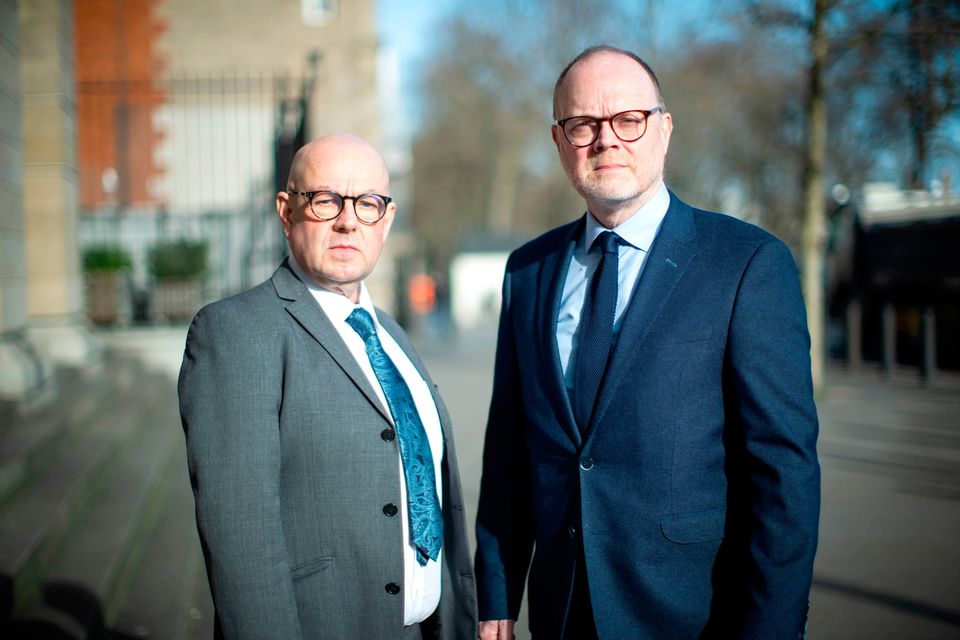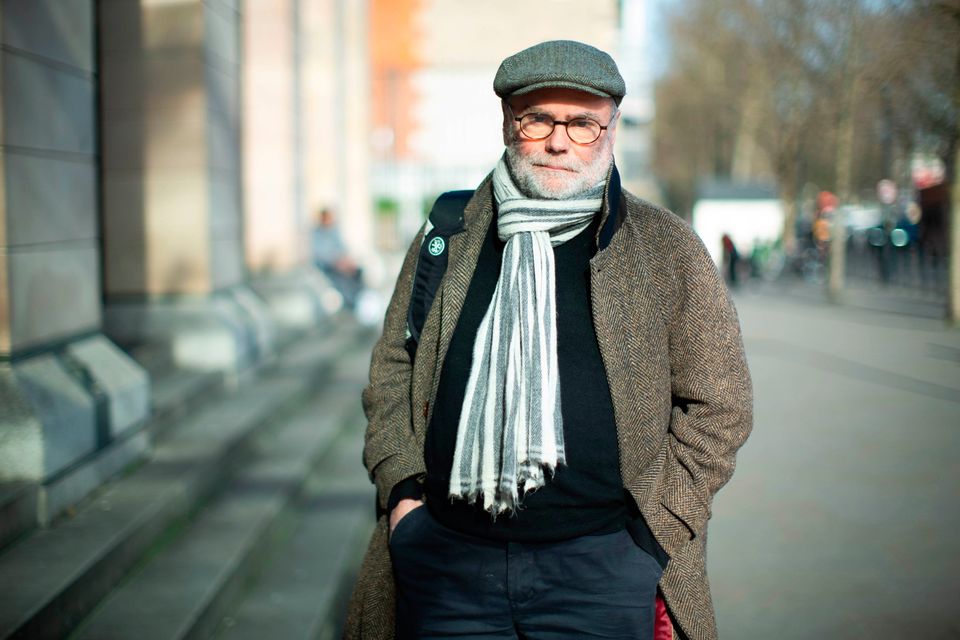A Belfast Telegraph journalist has told a Westminster committee looking into press freedom in Northern Ireland that she has received “eight or nine” threats from paramilitaries and organised crime gangs.
Our crime correspondent Allison Morris appeared before the Northern Ireland Affairs Committee (NIAC) on Wednesday.
The NIAC announced the Inquiry into Press Freedoms and Safety in Northern Ireland after it emerged police have been spying on journalists.
Today, during a sitting of the NIAC looking at police surveillance of the media, the safety of journalists and press freedoms in NI, MPs heard evidence from journalists and legal experts.
MPs were told that suspicions exist that police forces across the UK have been involved in spying on journalists.
Two Belfast journalists told the committee that their experience of covert surveillance showed a public inquiry was needed, describing it as an “attack on democracy”.
The committee also looked at concerns around threats made to journalists from paramilitary organisations and heard from Ms Morris.
‘I have been told I was going to be shot by dissident republicans on my way into work’
She said that receiving threats is “very common,” revealing that she faces online threats on a daily basis. Ms Morris added that in the last year she has been the target of a number of threats to life.
“When we talk about TM1s, which are actually threats from paramilitary groups or organised crime gangs, in the last 12 months I think I have had eight or nine,” she explained.
“That has included, on occasions, police at my door at 2.30am searching for bombs under my car. There was actually a device exploded in my street.
“I have been told I was going to be shot by dissident republicans on my way into work and given very specific details as to where I was going to be targeted.”
She added: “I’ve had threats from loyalist paramilitary groups and from a well-armed organised crime gang which has been responsible for three murders.”
Ms Morris said this something that you have to find “a way to live with it”.
“I try in my head to rationalise it, that I get to go home to my heavily fortified house,” she explained, adding that often the people she speaks to can’t do the same.
On the abuse she receives online, Ms Morris said that it is heavily gendered and often has misogynistic undertones.
“A lot of the abuse that journalists get is universal across the board, but the abuse I get compared to my male colleagues is very gendered,” she said.
Read more
Among the witnesses on the first panel were investigative journalists Barry McCaffrey and Trevor Birney.
Last December, the Investigatory Powers Tribunal (IPT) found that they had been put under unlawful surveillance by the PSNI and the Metropolitan Police.
The two journalists, along with Seamus Dooley, the assistant general secretary of the National Union of Journalists, gave evidence on Wednesday.
Mr McCaffrey said disclosure documents obtained by the IPT showed that journalists had been spied on “solely to identify our journalistic sources”.
He said: “We now know that the PSNI spied on me five times to identify journalistic sources.
“These included spying on my contacts with trade union officials, civil servants, they even used a loyalist death threat against me to go after my phone records.
“This was just an excuse to trawl through the phone records of a working journalist.”
Journalists Barry McCaffrey and Trevor Birney outside Portcullis House in London after an appearance before the Northern Ireland Affairs Committee to give evidence on the surveillance of journalists and press freedoms in Northern Ireland. Photo: James Manning/PA Wire
Mr Birney said they had “pulled a thread” in making the complaint to the IPT, which ultimately revealed a “very ugly picture of widespread dragnet surveillance by police in Belfast”.
Describing the PSNI operation to use surveillance against the individual suspected of leaking the document, Mr Birney said it was “like a storyline from Line of Duty or some sort of Kafkaesque novel”.
He added: “What we discovered in the thousands of pages of disclosure is that the PSNI was seeking the support of the Metropolitan Police going back as far as 2011 in order to surveil the communications data of journalists in Northern Ireland.
“Over one four-month period in 2011, over 4,000 phone calls and text messages were monitored by the Met at the behest of the PSNI. Many of those phone calls and messages were between BBC journalists.
“Basically, a UK police force was spying on the state broadcaster, the BBC, and its journalists and sharing that unlawful surveillance data with at least two other UK police forces, PSNI and Durham Constabulary, who also were involved in our arrest.”
PSNI Chief Constable Jon Boutcher last year announced an independent review of any use of surveillance against journalists and other specific groups by police in NI.
Journalist and author Malachi O’Doherty outside Portcullis House in London after an appearance before the Northern Ireland Affairs Committee to give evidence on the surveillance of journalists and press freedoms in Northern Ireland. Photo: James Manning/PA Wire
But Mr Birney said the scope of that review is “much too narrow”, adding that he believes it is an issue that relates to all areas in the UK.
He said only a full public inquiry could “get to the bottom” of the practice.
Addressing MPs, he said: “All you will know that you have communications with journalists, you all speak to journalists on a daily basis. That information is now in the hands of PSNI. The PSNI know what journalists are speaking to what politicians, and we feel that is an attack on democracy.
“This isn’t just an issue which pertains to the journalistic community… whether it is politicians, lawyers, activists, journalists, we feel it is a much broader societal issue and that is why it needs a public inquiry.”
Mr McCaffrey said: “The police need to be held to account, to follow the rules. It wasn’t us who broke the law. Confidence in policing has been seriously undermined and damaged. Trevor didn’t do it, Seamus didn’t do it, I didn’t do it. It was the PSNI.”
The second panel also included senior legal expert Paul Tweed and journalist and author Malachi O’Doherty. MPs discussed the use of SLAPPs (Strategic Lawsuits Against Public Participation), defamation law, and how the threat of legal action impacts the media.
Read more
News Catch Up – Wednesday 5 February


